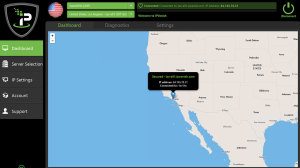
As overseas content services like Netflix and Hulu continue to gain traction, using a personal VPN (virtual private network) to access those services from outside of their intended regions has become quite common.
While VPNs are indeed a fantastic way to bypass geo-blocking and gain access to Netflix and other competing services, they have much more to offer. VPNs are generally used by businesses to protect their sensitive and confidential material by allowing employees to remotely connect to a company’s internal private network using a secure internet connection, but they can also give the average internet user a ‘permanent private mode’ for browsing and downloading.
With Malcolm Turnbull’s metadata retention scheme posing a genuine threat to the online privacy of millions of Australians, acquiring a personal VPN has never seemed like more of a necessity. Under the proposed federal scheme, the government would retain the right to hold on to your IP address for two years and keep a metadata log of everything you do on the internet.
This is where having a VPN comes in handy – all of the data you send or receive on the internet while using a VPN is encrypted and passes through a tunnel connecting you to a server in another part of the globe. Because of the server’s distant location, and the VPN’s ability to replace your IP address with one from another country, it becomes practically impossible for third parties to track where you actually are.
A VPN can be set up at a router level, covering every device that’s connected to your network, or across individual devices. Most VPN providers will offer a limited amount of simultaneous connections, though applying your VPN settings at a router level will only take up one connection, and will protect everything that’s connected to your network.
While VPNs are indeed a fantastic way to bypass geo-blocking and gain access to Netflix and other competing services, they have much more to offer. VPNs are generally used by businesses to protect their sensitive and confidential material by allowing employees to remotely connect to a company’s internal private network using a secure internet connection, but they can also give the average internet user a ‘permanent private mode’ for browsing and downloading.
You can read more about this article at Why you need a VPN – APC
